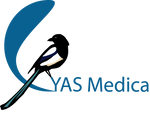Which vitamins for fatigue?
A guide to combating fatigue and feeling weak
In today's fast-paced world, many people constantly feel weak and tired. Many people feel tired all the time, despite getting enough sleep.
But did you know that the key to combating fatigue and feeling weak can lie in your diet? A balanced intake of vitamins can help you recharge your energy and ward off constant fatigue. But which vitamins really help with fatigue? This article will attempt to answer this question.
Vitamin B12 for tiredness and feeling weak
Vitamin B12 is known for its role in energy production and nerve function. It helps form red blood cells, which carry oxygen throughout your body. A common reason for tiredness and feeling weak can be a lack of vitamin B12.
A deficiency can lead to anemia, which is characterized by symptoms such as extreme fatigue despite adequate sleep and a general feeling of fatigue.
Taking vitamin B12 for fatigue can therefore help combat this feeling of constant tiredness. But when should you take B12? It is recommended to take vitamin B12 in the morning to benefit from its energizing properties.
Iron and vitamin D for fatigue
Iron and vitamin D3 are other important nutrients in the fight against fatigue. Iron helps produce hemoglobin, which carries oxygen throughout your body. An iron deficiency can lead to tiredness and fatigue.
Vitamin D3, on the other hand, plays a key role in the immune system and mood. A lack of vitamin D can lead to fatigue and even depression. There is also an interesting connection between vitamin B12 and iron - both are important for the health of your red blood cells and can contribute to fatigue when deficient.
Vitamin B11 and Vitamin C before bed
Which vitamin should I also consider for fatigue? The most important other micronutrients that can counteract chronic fatigue are: Vitamin B11 (folic acid) and vitamin C.
folic acid helps your body create new cells and is therefore important for overall well-being and energy. Vitamin C is a powerful antioxidant that strengthens your immune system. It may make sense to Vitamin C to be taken before bed to support the body throughout the night.
Dietary supplements for fatigue
There are numerous supplements on the market that promise to combat fatigue.
These anti-fatigue capsules or tablets often contain a mix of vitamins and minerals.
When choosing the best dietary supplement for fatigue, it is important to pay attention to a balanced composition and the quality of the active ingredients used. Because vitamins and minerals can vary greatly in their purity and bioavailability.
Conclusion
Vitamins can be an effective weapon against tiredness and feeling weak. An adequate supply of B vitamins above all Vitamin B12, but also iron, vitamin D, folic acid and vitamin C can help increase energy and combat fatigue.
However, if you are still constantly weak and tired despite eating a balanced diet, there could be an underlying health problem, such as depression or burnout. In such cases, it is always advisable to consult a doctor.
Remember: If you have chronic fatigue, the right micronutrients can help you overcome the constant feeling of sluggishness and return to full energy. Therefore, pay attention to your sleep quality and your diet. If necessary, let us as a pharmacist for nutritional medicine or your doctor advise you






